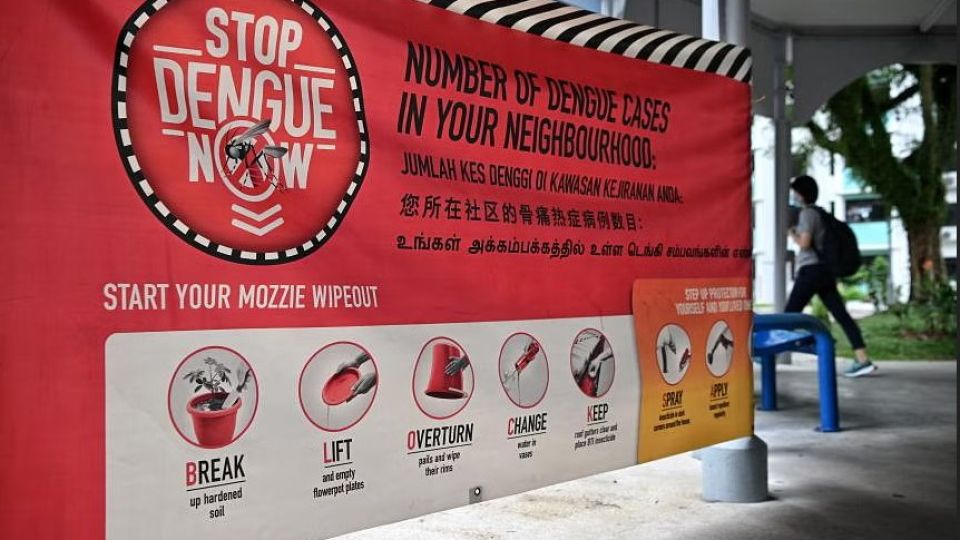February 7, 2024
SINGAPORE – More than 2,000 dengue cases have been reported since the start of 2024. This is the highest number recorded in at least five years for the corresponding period.
It is more than one-fifth of all dengue infections in 2023.
The National Environment Agency (NEA) told The Straits Times that the continued rise in cases – numbers have gone up over nine consecutive weeks – is “a big concern”. But it is still too early to say if it will result in a major outbreak in 2024.
There were 494 infections in the week ending Feb 3. Since then, another 185 cases have been reported as at Feb 6, 11am.
There are currently 96 active dengue clusters across the island. The largest is at Ang Mo Kio Avenues 1 and 3, and Street 31, which has reported 106 cases, including 48 in the last fortnight. Block 303 at Avenue 1 accounted for 19 cases.
NEA said this is one cluster where it has observed a fast rate of dengue transmission.
Its spokesman said the rise in cases is likely driven by intense dengue transmission in areas with high Aedes mosquito population.
This would exclude places where the agency has been releasing male Wolbachia mosquitoes, such as Tampines and Choa Chu Kang, that has resulted in an 80 per cent reduction in the Aedes mosquito population.
The male Wolbachia mosquitoes are sterile, so when they mate with the females, mosquitoes are not reproduced, thus reducing its population.
People living in areas where Wolbachia mosquitoes have been released for at least one year are “up to 77 per cent less likely to be infected with dengue”, said NEA, citing data from 2019 to 2022.
This is why it has decided to expand the project in 2024 to five more locations, from the original eight. The new locations, chosen based on historical dengue risk, are: Bukit Merah-Telok Blangah, Clementi-West Coast, Commonwealth, Holland, and Marine Parade-Mountbatten.
This will will add another 70,000 households to the areas covered by the project for a total of 480,000 households, representing 35 per cent of homes here.
The breeding of the sterile male mosquitoes will rise from seven million a week in 2023 to 11 million in 2024 to cater to the expansion of the project.
Another factor contributing to the rise in dengue numbers here is “our population’s low immunity to all four dengue serotypes which are currently in circulation”, the NEA spokesman said.
People do not get re-infected by the same serotype, but can be infected again, but by the other three. The current dominant serotype is DEN-2, which gained dominance in September 2023. DEN-3 was dominant from 2021 till mid-2023 when DEN-1 prevailed for a few months.
Professor Paul Tambyah, a senior infectious diseases consultant at the National University Hospital, speaking in his capacity as president of the United States-based International Society for Infectious Diseases, agreed that it is too early to predict an outbreak in 2024.
“It is hard to really predict what is going to happen in June, July based on a few weeks’ data. It could turn out to be relatively flat like in 2023,” he said.
Dengue cases here tend to peak around the middle of the year. In 2020, the year of the biggest outbreak here, with more than 35,000 infections, the peak was in July, with 1,787 cases a week. In 2022, another outbreak year with 32,000 infections, the peak of 1,552 cases occurred in the last week of May.
Although there were fewer than 10,000 dengue cases in 2023, the virus killed six people, of which three occurred in the last quarter of the year. The highest number of dengue deaths occurred in 2020 when 32 people succumbed to the disease.


